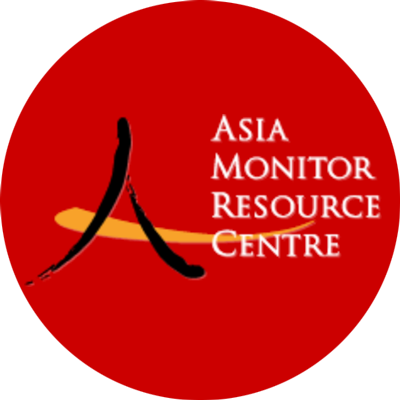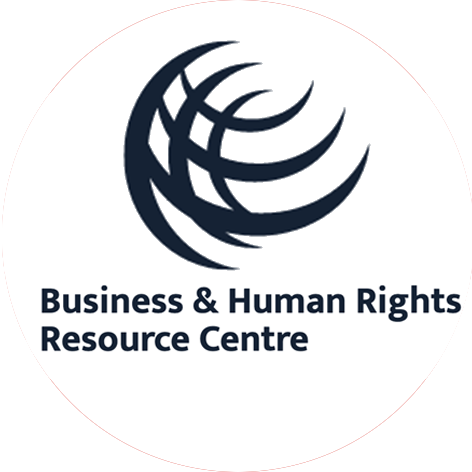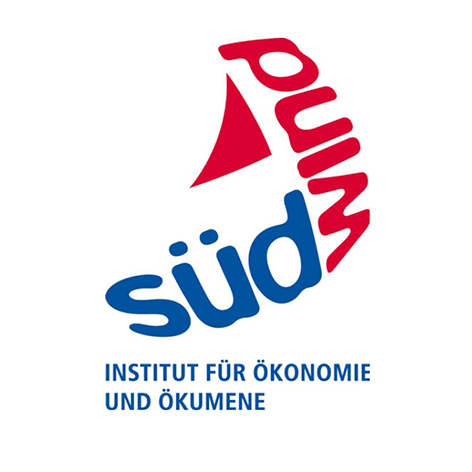Cividep
Towards decent work for all
Cividep has been working on corporate accountability and the advancement of workers’ rights since the year 2000.
What we do
Based in Bangalore, and with field-offices in other locations in South India, our work aims to safeguard the rights of communities, especially workers employed in global supply chains. We focus on a selection of India’s most significant export-oriented industries, striving to hold corporate entities accountable for the impacts of their business on workers and the environment.
Our Approach
Cividep works in the area of business and human rights, and engages directly with a range of India’s export sectors: garment, leather, and electronics industries, coffee and tea plantations. In our efforts to advance corporate accountability, we:
Research
Conduct research on working conditions and corporate conduct across India’ export industries
Educate
Support
Support workers in their efforts to bargain collectively for fair wages and decent working conditions
Advocate
Given the diversity of stakeholders in the supply chains of these industries, as well as the multiple private and state actors that determine working conditions in global supply chains, it follows that Cividep works with a wide range of partners. We collaborate with national and international organizations and networks for the advancement of responsible business conduct and human rights, and with partners both in India and abroad, in pursuit of decent work for all.
Corporate Accountability
Cividep India considers corporate accountability to be the most fundamental aspect of responsible business conduct. The concept recognises that corporations have ethical, moral and legal obligations to their employees and workers, and to communities directly impacted by corporate activities.
With the ongoing erosion of the state and privatisation of economic and welfare functions, the significance of transnational companies’ impact on human and environmental rights is only growing. In this context, Cividep believes that corporations should be made responsible for the impact of their actions, and should be held accountable for labour rights violations and environmental degradation in their supply chains. Corporate accountability seeks to address this need for placing social and environmental duties and obligations on corporations.
Corporate accountability is distinct from Corporate Social Responsibility (CSR). CSR is not articulated in terms of rights and obligations and does not adequately address the negative impacts of business activities. By contrast, corporate accountability entails respecting human rights through responsible and accountable conduct on the part of businesses in relation to workers, suppliers, consumers, the environment, communities, civil society and the government of the country where production is carried out. Rather than merely encouraging businesses to improve standards or adhere to voluntary reporting measures, corporate accountability demands enforceability.
Annual Reports

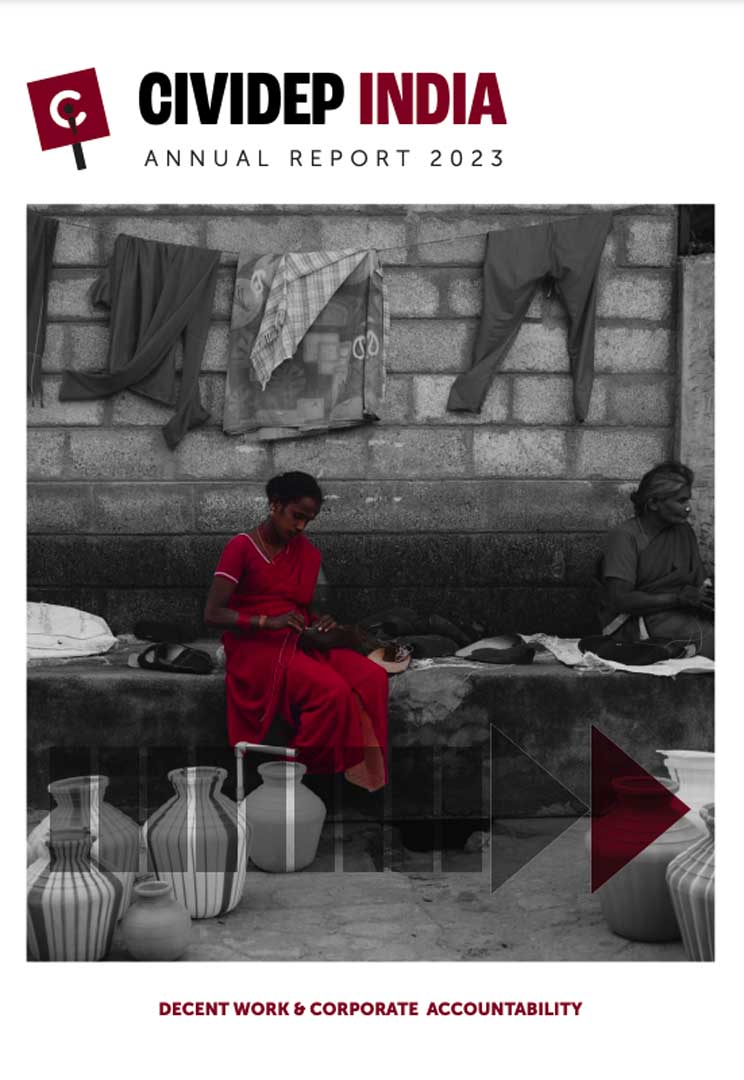
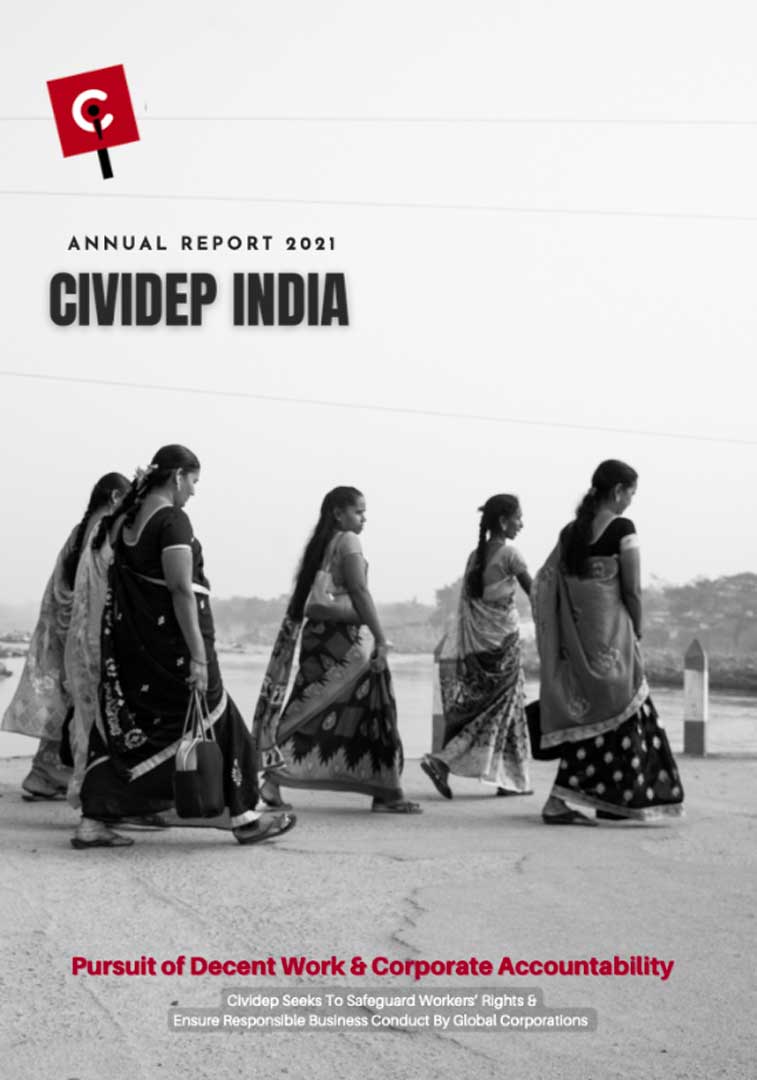
Our Partners
Transforming the dynamics in global supply chains is a big, perennial challenge. We work alongside stakeholders of all kinds, from workers, to NGOs and solidarity networks, to factories, towards better working conditions for people in India’s export industries. Our partners include:
Grants
Find details on our funding below.
2015 - present
January 2025 – September 2025
April 2024 – March 2025
April 2023 – March 2024
April 2022-March 2023
April 2021 – March 2022
April 2020 – March 2021
1st Quarter
2nd Quarter
3rd Quarter
April 2019 – March 2020
1st Quarter
2nd Quarter
3rd Quarter
April 2018 – March 2019
1st Quarter
2nd Quarter
3rd Quarter
4th Quarter
April 2017 – March 2018
1st Quarter
2nd Quarter
3rd Quarter
4th Quarter

